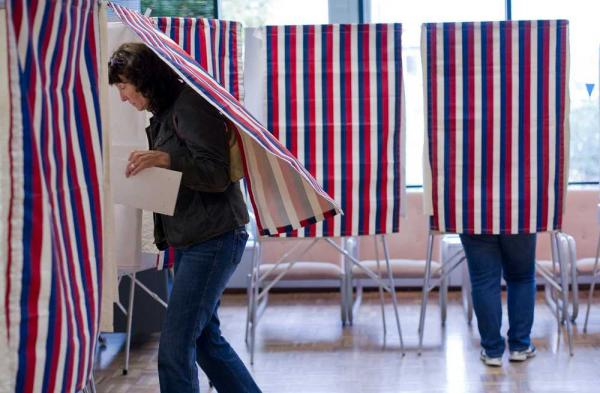For more than 30 years, Juneau voters have decided whether to extend sales taxes through a reappearing ballot question. Now one ballot question could end that all.
On Monday night, city officials passed an ordinance (with some objection) that places a new question on the October 2016 ballot: should the 3 percent city sales tax extend another five years, or should it be in place forever? Voters will still maintain the option to vote against the sales tax completely.
There was no public comment on the seemingly sweeping matter, which was previously discussed at a June 6 Committee of the Whole meeting, but three Assembly members let their objections be known.
“I like the fact that the voters every five years get to give us a report card on how we’ve done spending the money,” Assembly member Jerry Nankervis said.
If approved, the tax would become permanent in 2022, assuming voters also approve the latest five-year extension (2017 to 2022).
Although Nankervis said he understands why some people might think a permanent tax could be good for the city — planning for Juneau’s future outside of five years becomes financially difficult without security of the tax — it’s a path he worries could become troublesome down the road and U-turns won’t be possible.
“I don’t think once we make it permanent we’ll ever get away from it,” Nankervis said.
Instead of looking ahead, Assembly member Debbie White wondered what Juneau’s past would have looked like with a permanent sales tax in place just a decade or two ago.
“(My father) remembered that the day Augustus Brown Swimming Pool was paid for, that percentage of the tax was dropped, and it was in the middle of the fiscal year and there was accountability for those funds,” White said.
A fluctuating tax environment wasn’t the only reason White opposed the measure. Voter engagement has proven to be sparse in Juneau — the 2015 municipal election saw a 23.5 percent turnout, the second-lowest turnout in at least 30 years — and with a permanent tax in place the need to engage could drop, White said.
“I think it’s a way of keeping the voters in touch with what’s going on because if they make it permanent, they’re making the decision for the people who are in kindergarten now or maybe not even born yet,” White said. “It’s just another way to keep an engaged populace.”
The majority of Assembly members disagreed with keeping it off the ballot and the possibility of a permanent tax, a five-year extension or no tax at all is in the voters’ hands now — however few that may be in the end.
The 3 percent tax affects areas of city business such as police, fire, street maintenance, snow removal, library costs, capital improvement projects, general government services and budget reserve.
Votes against a permanent tax on the ballot: Assembly members Jamie Bursell, Nankervis and White. Votes for a permanent tax on the ballot: Assembly members Maria Gladziszewski, Kate Troll, Mary Becker, Deputy Mayor Jesse Kiehl and Mayor Ken Koelsch.
Taxing marijuana, again
The Assembly, almost unanimously, agreed to push a ballot measure forward that could allow marijuana and alcohol sales taxes to be equal. Nankervis said he’s not sure why, and he was the only Assembly member who objected to the ordinance that eventually passed.
“If it’s good enough to do business in our town, it ought to be taxed like everything else,” Nankervis said.
Assembly member White said the people who advocated for marijuana sales in Juneau did so on the basis that it be treated like alcohol. The city also has no idea what it will cost to enforce laws or handle other matters as marijuana potentially becomes a popular sales item. She said industry studies also show that an 8 percent tax is “fair” and won’t promote a black market need for distribution.
Juneau resident William Quayle, who said he has never smoked marijuana nor plans to, told the Assembly he thinks it should wait until businesses are established before raising taxes.
The city’s finance department estimates that, based on a 5 percent rate, marijuana revenue for the city could fall between $105,000 and $285,000. If 3 percent were added, that would add an additional $65,000 to $170,000 in revenue to be deposited in the sales tax fund for general government operations.
Voters will decide on the matter in October.
Mayoral matters
Mayor Koelsch had two non-agenda items he presented during Monday’s meeting: the police should receive more thanks for their efforts, and the Legislature needs to get its job done by passing a balanced budget.
For that first message, Koelsch extended a thank you to Juneau Police Department Chief Bryce Johnson who attended the meeting briefly, and said in light of the recent Dallas shooting that killed five police officers we should all remember those who continue to serve and protect us.
“For the rest of this month, when you see a law enforcement officer or their families, take a moment to say thank you. They are truly our first line,” Koelsch said.
Koelsch’s second request was for Alaska’s 29th Legislature, which started its fifth special session Monday. He asked in the form of a city resolution that they consider the fact that a $4 billion statewide deficit creates great uncertainty for all of Alaska’s municipalities.
Specifically, and according to the resolution the Assembly unanimously adopted Monday night, there could be a $4.5 million negative financial impact to Juneau if Gov. Bill Walker’s vetoes to the state budget are not resolved.
• Contact reporter Paula Ann Solis at 523-2272 or paula.solis@juneauempire.com.
Related stories:
Juneau rally urges lawmakers to ‘Do your jobs!’
Update: Search suspended for missing Juneau woman
Two-billionth salmon caught in Bristol Bay, sent to Gov. Walker
In Haven House ceremony, Walker signs sweeping reform of Alaska’s criminal justice system

